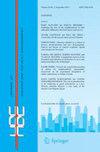Beyond exit, voice, and loyalty: the role of urban resistance in a deprived neighborhood of Madrid
IF 1.8
3区 经济学
Q3 ENVIRONMENTAL STUDIES
引用次数: 0
Abstract
Abstract In large cities, the decay of deprived neighborhoods externalizes the consequences of present-day urban social inequality. Residents of these areas often show discomfort with living in a poor environment. Adopting Hirschman's classic Exit, Voice and Loyalty model, this study analyzes the reactions of residents to dissatisfaction in San Diego, a deprived neighborhood in Madrid. A qualitative methodology was applied to analyze the discourses of residents by conducting fourteen focus groups with diverse profiles according to gender, age, socio-labor situation, and geographical origin. The results reflect that, in a deprived neighborhood, there are limits to reactions, so that exit (moving out) is only partially manifested, and voice (social mobilization) is only temporarily activated, conditioned by the situation and organizational capacity. Loyalty, on the contrary, appears as an option that improves coexistence, but it remains attached to long-term residents and hardly welcomes newcomers, especially immigrants. The explanatory capacity of Hirschman's model is here expanded by exploring the use of resistance as a complementary response. This strategy, as a political reaction, complements voice and reinforces agency by seeking concrete improvements in the daily life of the residents. These qualitative research results provide important insight into neighbors’ reactions in deprived areas, where exit and voice, as main options, are limited, and resistance becomes a significant potential for them.在退出、声音和忠诚之外:马德里一个贫困社区的城市抵抗作用
在大城市中,贫困社区的衰败体现了当今城市社会不平等的后果。这些地区的居民经常对生活在恶劣的环境中感到不适。本研究采用赫希曼经典的退出、声音和忠诚模型,分析了马德里贫困社区圣地亚哥居民对不满的反应。本研究采用质性研究方法,针对不同性别、年龄、社会劳动状况及地域背景的14个焦点小组,对居民的话语进行分析。结果表明,在一个贫困的社区,反应是有限的,因此出口(搬出去)只是部分表现出来,声音(社会动员)只是暂时激活,受情况和组织能力的制约。相反,忠诚似乎是一种改善共存的选择,但它仍然与长期居民联系在一起,几乎不欢迎新来者,尤其是移民。赫希曼模型的解释能力在这里通过探索使用抵抗作为一种补充反应而得到扩展。这一战略作为一种政治反应,通过寻求居民日常生活的具体改善,补充了声音并加强了机构。这些定性研究结果为了解贫困地区邻居的反应提供了重要的见解,在这些地区,退出和发声作为主要选择是有限的,抵抗成为他们的重要潜力。
本文章由计算机程序翻译,如有差异,请以英文原文为准。
求助全文
约1分钟内获得全文
求助全文
来源期刊
CiteScore
3.70
自引率
10.50%
发文量
63
期刊介绍:
The Journal of Housing and the Built Environment is a scholarly journal presenting the results of scientific research and new developments in policy and practice to a diverse readership of specialists, practitioners and policy-makers. This refereed journal covers the fields of housing, spatial planning, building and urban development. The journal guarantees high scientific quality by a double blind review procedure. Next to that, the editorial board discusses each article as well. Leading scholars in the field of housing, spatial planning and urban development publish regularly in Journal of Housing and the Built Environment. The journal publishes articles from scientists all over the world, both Western and non-Western, providing a truly international platform for developments in both theory and practice in the fields of housing, spatial planning, building and urban development.
Journal of Housing and the Built Environment (HBE) has a wide scope and includes all topics dealing with people-environment relations. Topics concern social relations within the built environment as well as the physicals component of the built environment. As such the journal brings together social science and engineering. HBE is of interest for scientists like housing researchers, social geographers, (urban) planners and architects. Furthermore it presents a forum for practitioners to present their experiences in new developments on policy and practice. Because of its unique structure of research articles and policy and practice contributions, HBE provides a forum where science and practice can be confronted. Finally, each volume of HBE contains one special issue, in which recent developments on one particular topic are discussed in depth.
The aim of Journal of Housing and the Built Environment is to give international exposure to recent research and policy and practice developments on the built environment and thereby open up a forum wherein re searchers can exchange ideas and develop contacts. In this way HBE seeks to enhance the quality of research in the field and disseminate the results to a wider audience. Its scope is intended to interest scientists as well as policy-makers, both in government and in organizations dealing with housing and urban issues.

 求助内容:
求助内容: 应助结果提醒方式:
应助结果提醒方式:


